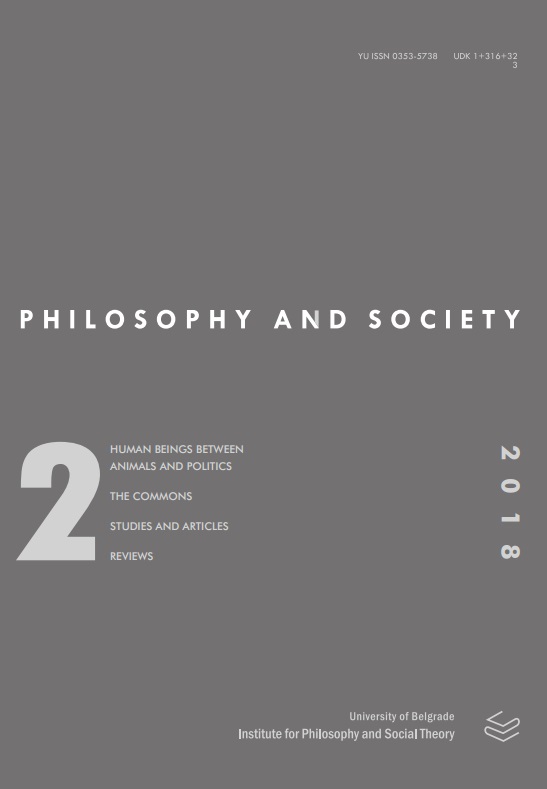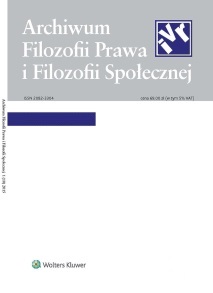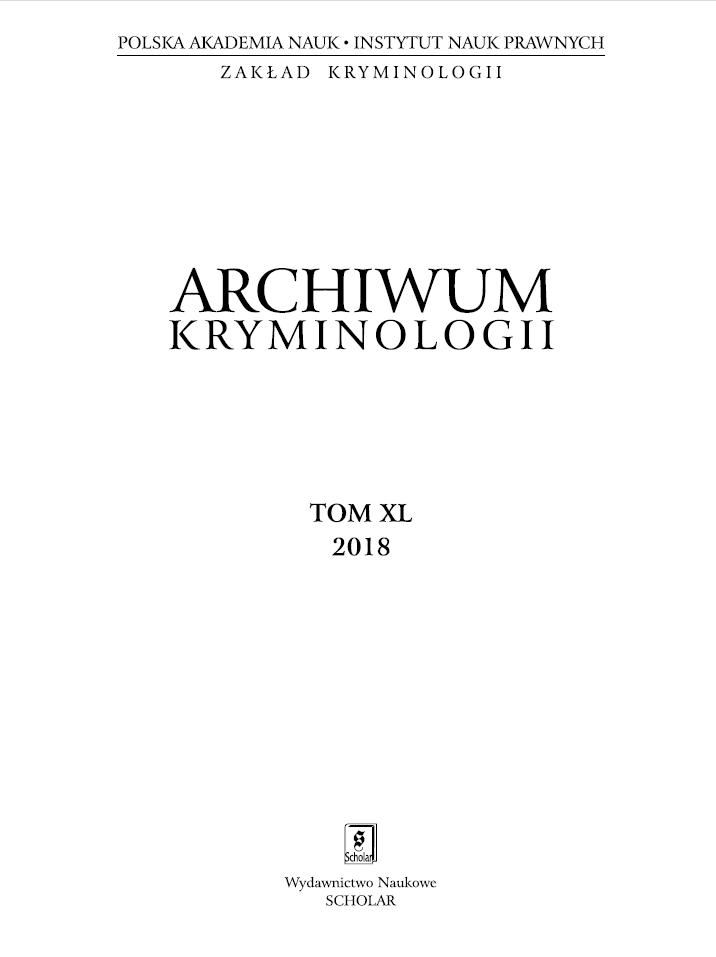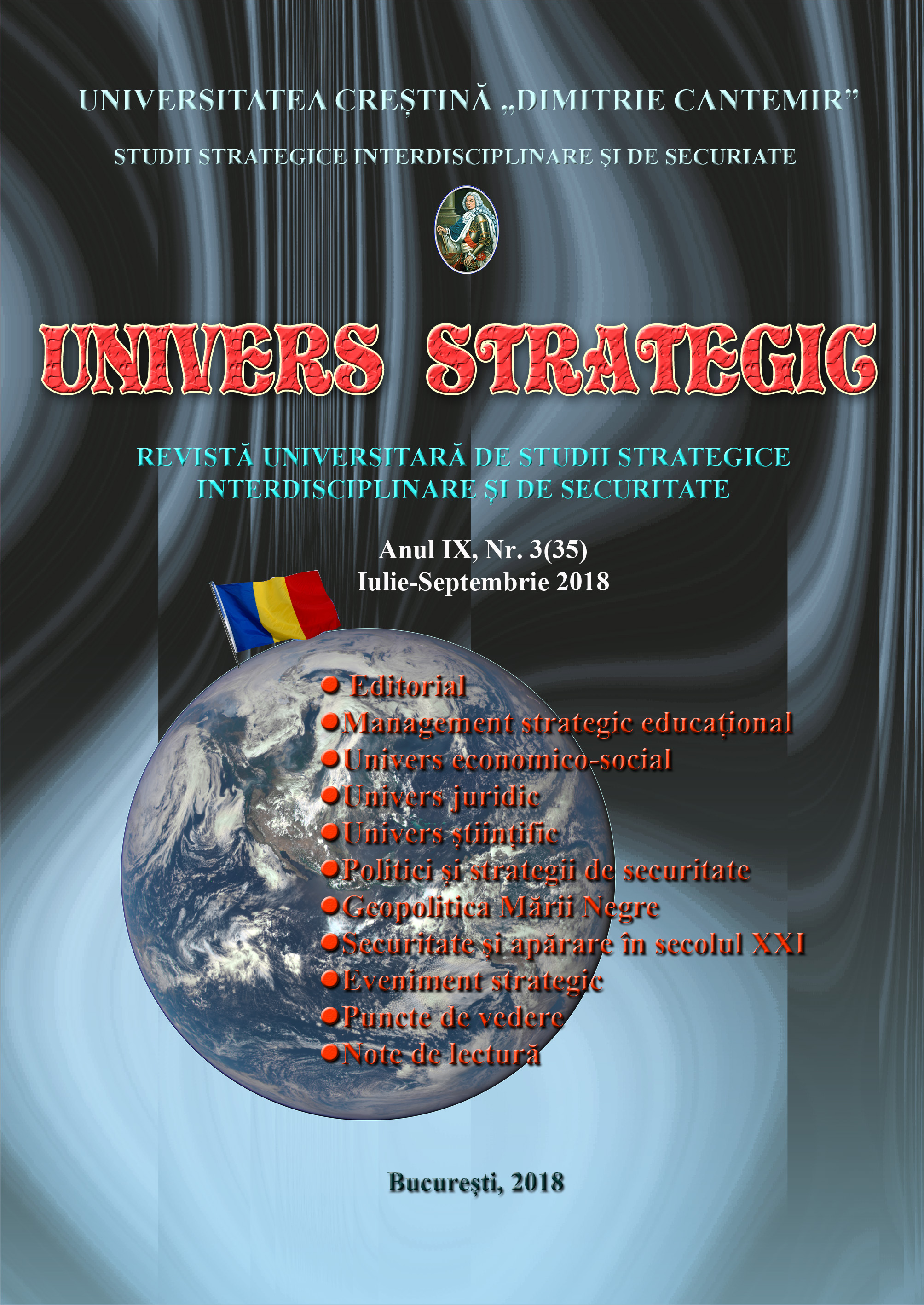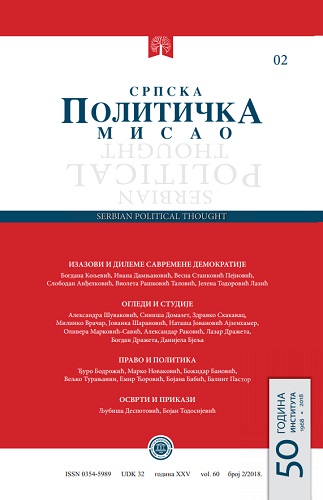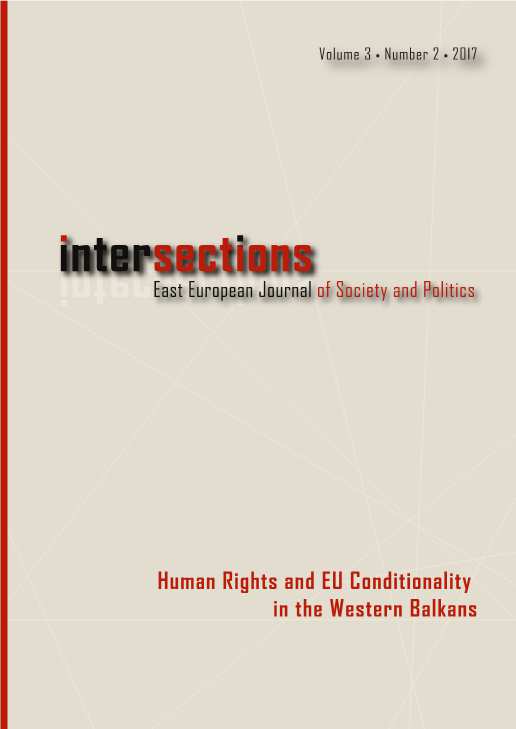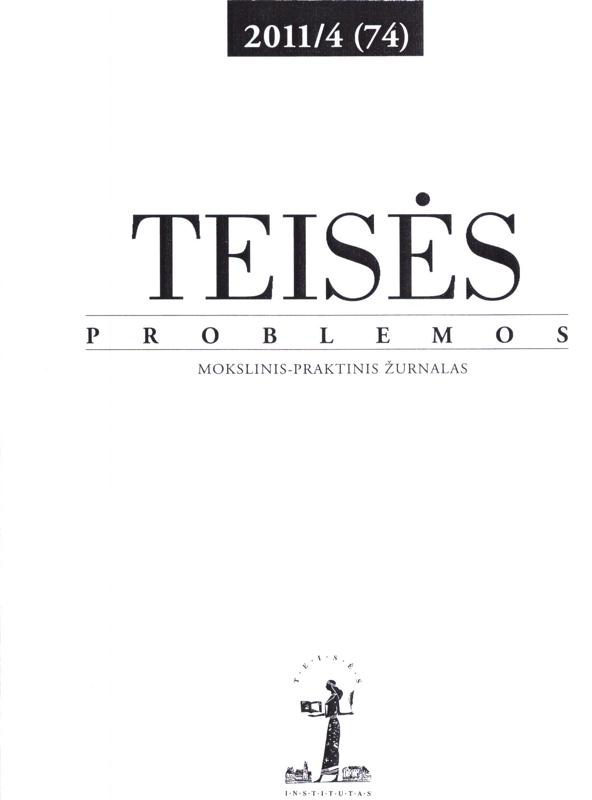Author(s): Joanna Narodowska / Language(s): Polish
Issue: XL/2018
Brutalisation of crimes involving violence, as well as crimes connected with physicaland verbal aggression in public life can be observed in the Polish society. At the sametime, the media inform about these pathologies in diverse ways. The problem of crimesinvolving violence against individuals is a classic area of criminological research. InPolish criminological literature, problems associated with violence towards animalsare set aside from the basic considerations concerning the problem of violence. Itis noted that this theme is the subject of many English-language publications. InAmerican criminological literature, it is indicated that the perpetrators of abuse(perpetrators of domestic violence) also use violence against domestic animals as socalled“substi tute objects”. There is no indigenous empirical research confirming orfalsifying the hypothesis on the existence of such a correlation. Therefore, the main aimof this work was to define, on the basis of the results of the author’s research, ifthere is any relationship between the phenomenon of aggression towards animalsand propensity for agression towards people. Moreover, the author formulatedthe following research problems: have the perpetrators of crimes involving cruelty toanimals been previously convicted, particularly for any crimes of aggression? Whatkind of crimes were they? Is it possible to specify the common features that characteriseperpetrators who use violence against animals and people? What factors play a leadingrole in the criminogenic process concerning perpetrators of crimes of aggression?The work is divided into five parts. The first, called “Introductory Matters”, offersa review of the status quaestionis and definitions of the basic concepts which appearin the subsequent parts of the paper (violence, aggression, legal status of animals,cruelty to animals). The second part summarises the methodology of the author’sresearch. The applied research method involved researching documents, done by usingthe records research technique (indirect observation). The research tools includedthe author’s questionnaire of records research consisting of 34 questions grouped in fivecategories: preparatory proceedings, court proceedings, trial (the first and the secondinstance), the perpetrator’s deed, the victim of crime, the perpetrator of crime. Thesubject of analysis covered the contents of the court records in criminal cases with legalvalidity concerning Article 35 of the Act on the Protection of Animals. Therefore, onlythe finalised court proceedings were researched. The research included 59 criminalproceedings instituted against 61 persons accused of a prohibited act in the formof animal killing or violence against animals. The research was conducted in the firsthalf of 2017 in the District Court in Olsztyn (2nd Criminal Department and 7th CriminalDepartment). The time range of the research included the period 1997–2016, i.e. sincethe entry into force of the Act on the Protection of Animals until the end of the research, considered as full calendar years. The author researched all criminal cases that endedwith a final judgement. On the basis of the established criteria, criminal cases wereselected in which the relationship between the use of violence by perpetrators towardsanimals and people was ascertained. Further analysis was applied to 23 criminal cases,in which 21 perpetrators were convicted. The third part discusses the research results.The data collected for the purposes of criminal proceedings have provided basic informationconcerning the gender and the age of the perpetrator, his/her education, maritalstatus, employment, prior criminal history, legal qualification of the committed crimesand the statement whether the perpetrator was under the influence of alcohol or drugsat the time of committing the crime. On the basis of personal and cognitive dataof the perpetrators of crimes punishable under Article 35 of the Act on the Protectionof Animals and the forensic and psychiatric opinions drawn up for the purposes ofcriminal proceedings, the characteristics of the studied population were presentedand the factors that could play an important role in the genesis of acts of aggression(risk factors) were identified. In the fourth part, the selected criminological theoriesexplaining the reasons for the aggressive behaviour were referred to specific casesof the examined perpetrators. The work ends with a conclusion which provides a verificationof the researched hypotheses for the purposes of the paper.
More...
